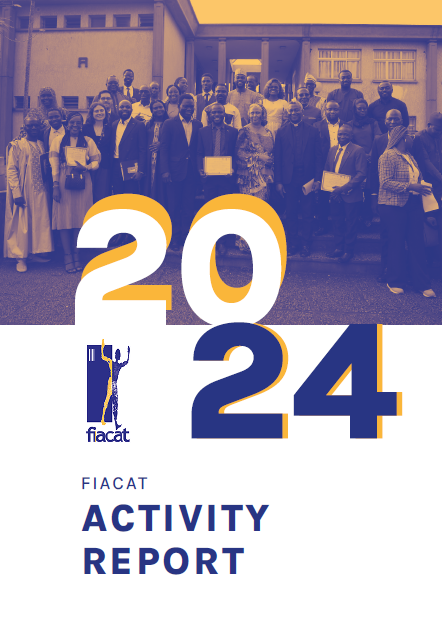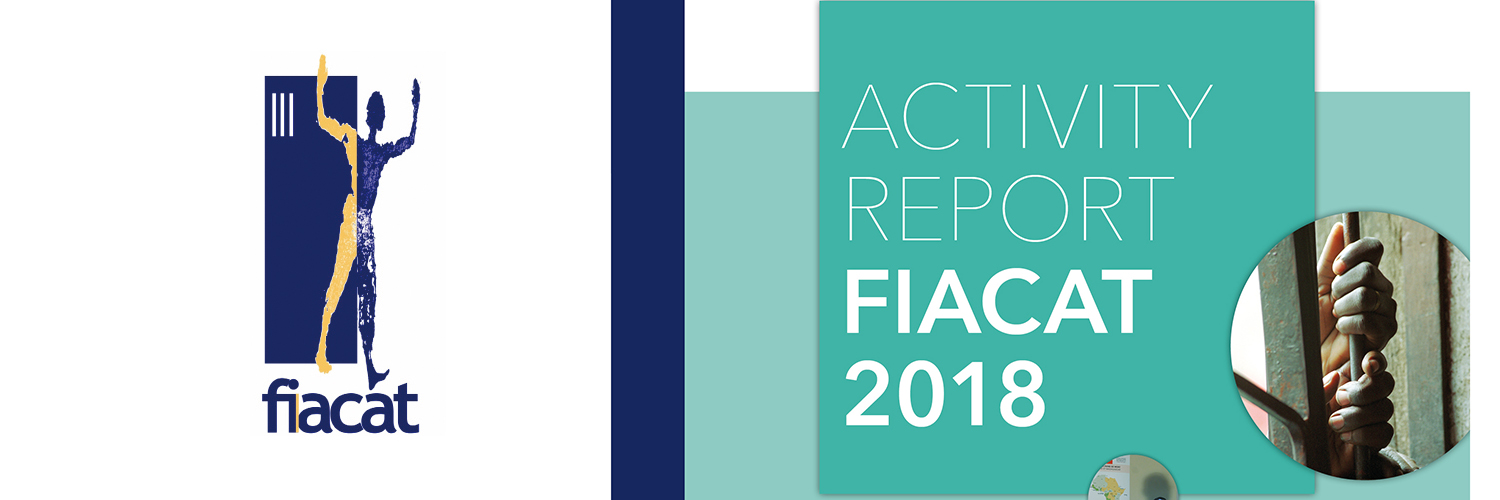- THE PRESIDENT’S EDITORIAL -
Six years after Brussels, the International Council (IC) was held in Abidjan providing the opportunity for delegates from the ACAT’s global network to meet, exchange ideas and reflect together on how the FIACAT functions. It was an ideal occasion to celebrate, with due sobriety, yet great enthusiasm, the 30 years of the FIACAT’s existence.
And so, from 11-13 April 2018, the IC revised the FIACAT’s statutes, adopted the new ACAT subscription rates, affiliated the ACAT Niger and recommended to the FIACAT’s International Bureau that regular elections be held by ACAT Cameroon. These elections subsequently took place, resulting in the lifting of ACAT Cameroon’s suspension in October 2018; the association has since re-joined the FIACAT.
In line with its action plan, the FIACAT has promoted three strategic areas of action during the course of the year.
The first, concerns the fight against torture and degrading treatment through a wide-ranging programme aimed at fighting "abusive pre-trial detention". It has been implemented in four countries in Africa: Congo-Brazzaville, Côte d’Ivoire, the Democratic Republic of Congo and Madagascar. The results exceeded expectations by far. As a result in 2018, 1,697 individuals held on remand beyond the legal time limits were released. In view of the positive results, a fifth country, Chad, has now been included in the programme. Access to justice for those held in detention remains a major problem throughout the world. Accordingly, in December 2018 the FIACAT took part in an important meeting at the European Court of Human Rights on this very subject.
The second axis of our work centres around abolition of the death penalty. Since 2015, the FIACAT has been running a programme in partnership with the World Coalition against the Death Penalty, to promote the abolition of the death penalty in 21 countries in Sub-Saharan Africa. A discussion workshop was held in Abidjan on 9 April 2018. This meeting enabled us to assess the current situation and re-focus our fight towards abolition in Africa. We took away one lesson from this event: Africa is the next abolitionist continent.
These actions to ban torture and to abolish the death penalty would not be possible were it not for the training and awareness activities and the advocacy work that result inpositive outcomes: for example, the abolition of the death penalty by Burkina Faso on 31 May 2018 and the increase in the number of states that voted in favour of the UN General Assembly resolution calling for a universal moratorium on capital executions (117 in 2016 and 121 in 2018).
Lastly, the third area of our work involves the FIACAT’s support of the ACATs. This includes strengthening their abilities, accompanying them before regional and international bodies and relaying information about their campaigns. Sadly, 2018 was also the year that saw Germain Rukuki, an activist with ACAT Burundi, sentenced to 32 years in prison. Following this arbitrary conviction and while waiting for the outcome of the appeal hearing, the FIACAT and the ACATs have taken action and are hoping he will be released in 2019.
The FIACAT has reached the age of maturity and is only too aware of the many challenges still to face. Thanks to its network and sustained by its faith, the organisation continues to create channels of hope.
Paul ANGAMAN
President of the FIACAT





